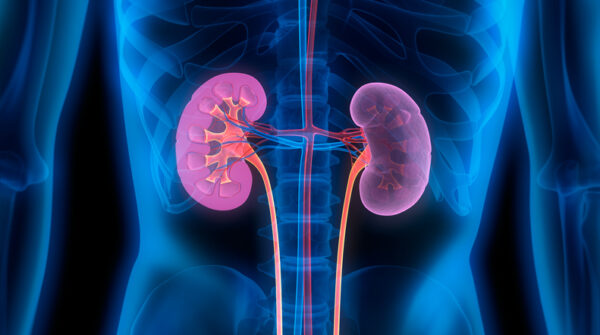
The kidneys play a vital role in determining health and lifespan. Their primary function is to eliminate waste products and surplus fluids from the body via urine. This intricate process of excretion and reabsorption is essential for maintaining the body’s chemical balance.
Kidneys can also serve as sensors and regulators. They can detect the slightest changes in your body, stimulating hormones as necessary to produce more red cells, regulate your blood pressure, support bone health as well as keep your water, salts, and minerals balanced.
Recent research at the University of Alberta has underscored the link between poor kidney health and increased emergency room visits, hospital admissions, and surgeries. While advances in medical science and treatments significantly improve outcomes, the sheer complexity of the kidney demonstrates that modern medicine still has a long way to go.
Understanding kidney function
Healthy kidneys process approximately 180 liters of fluid a day. This continual process of filtration not only removes waste products and extra water as urine but also helps the body maintain an optimal balance of body fluids, electrolytes, and glucose. While the heart provides the energy necessary to filter blood, the kidneys expend a significant amount of energy to selectively reabsorb these vital components through transport channels.
The sophistication of the kidney’s functions presents a challenge when trying to mirror its many functions in medicine. Dialysis, for example, is used as a filtration system. Still, it can’t selectively reabsorb needed nutrients, so patients need to take an average of eight medications daily, plus supplements, to compensate for lost kidney function. Filtration is just one of the kidneys’ functions, demonstrating the complexity of addressing gaps in overall kidney function.
Gaps in kidney treatment
Currently, diuretics and dialysis are the primary treatments employed for kidney disease. Diuretics help remove excess salt and water, providing a relatively mild intervention. Dialysis, on the other hand, is a life-saving procedure for patients whose kidneys are no longer effectively filtering toxins. Neither treatment addresses the kidney’s complex needs since it targets a single function. This can create additional imbalances, underscoring the need for more comprehensive solutions.
Renal assist devices (RADs) are a promising solution to address these challenges. Some RADS can maintain and improve kidney filtration while reducing the need for excessive reabsorption. This helps resolve any imbalances and reduces the burden on kidney function. RAD is a far more comprehensive treatment than diuretics and dialysis, but managing the health of kidneys has its own set of challenges.
The challenges of kidney health management
- The inability to artificially replicate kidney function: The kidney is a marvel of engineering. It can reabsorb approximately 98% of the salt and water it filters to prevent dehydration. As noted, this reabsorption is energy-intensive. It relies on oxygen and transport proteins to carry out its work. To date, no one has developed an artificial membrane that can replicate this balancing act of maintaining homeostasis.
- Limitations of renal replacement: Dialysis requires patients to spend four to five hours in a chair three days a week. Conducted in a clinical setting, this routine is physically demanding and can cause anxiety, nausea, cramping and infections. Of course, it is highly disruptive in terms of maintaining a normal lifestyle. Home dialysis has offered some improvements, but it has its own challenges regarding training and caregiver support. Implanted dialyzers provide a more sustainable future option, easing the burden on patients.
- Shortage of transplants: More than 808,000 individuals suffer from end-stage renal disease (ESRD), but only 16,000 kidney transplants are performed annually. Xenotransplantation, including recent successes with pig kidney transplants into humans, provides a glimmer of hope, as does cell therapies that can regenerate diseased organs. A good example is ProKidney, which could revolutionize treatments and help bridge this gap, bringing us closer to a future where kidney replacement is more accessible and effective.
Innovative technologies in kidney health
New technologies are continually emerging from research labs and healthcare providers that are transforming kidney health management and enhancing our understanding of the kidney, how it functions and what treatments are optimal.
Alio recently launched the SmartPatch, a non-invasive device that continuously monitors the potassium levels in dialysis patients so health can be monitored more effectively. Another company, Dialty, has similarly launched its new hemodialysis system, Moda-flx, which offers a wide variety of variable flow rates using reverse osmosis water filtration and an intuitive, easy-to-use graphical user interface.
These advancements expand treatment options and aim to minimize the need for intensive care interventions, offering renewed hope and improved outcomes for individuals affected by renal diseases.
The future of kidney disease management
The future looks promising and researchers and healthcare professionals continue to refine existing therapies and technologies and develop new ones. Emerging alternatives include wearable artificial kidneys, xenotransplantation, stem cell-based therapy, and bioengineered and bio-artificial kidneys.
This will get us part of the way there, as will new medications that can prevent the progression of chronic kidney disease, which will become the fifth top mortality by 2040. Many of these are in the later stages of clinical development or have already been approved for use in other countries.
To improve outcomes further, healthcare providers will need to take bold action to diagnose and manage this kidney disease before it becomes chronic or fatal. Leveraging innovative therapies and treatments can offer hope by offering a proven pathway forward for increasing patients’ quality of life with more effective and less invasive solutions, reducing the burden of kidney disease on patients, their caregivers, and their families.
Together, we can redefine possibilities for patients and the healthcare community, fostering innovative solutions and shared progress toward improved patient outcomes. Join us in our mission to advance kidney health management by collaborating with healthcare innovators, nephrologists, and our many stakeholders.
Editor’s Note: The author has no financial relationship with any of the companies / products mentioned.
Photo: peterschreiber.media, Getty Images
John Erbey, CEO and Founder of Roivios, leverages over 25 years of visionary leadership in the medical sector. With a Ph.D. from the University of Pittsburgh and Delta Omega membership, his research expertise drives Roivios' innovative pursuits. Spearheading Roivios to pioneer kidney health management, John champions transformative solutions like the JuxtaFlow® Renal Assist Device (RAD), set to redefine global kidney care with a focus on sustaining or enhancing kidney function.
This post appears through the MedCity Influencers program. Anyone can publish their perspective on business and innovation in healthcare on MedCity News through MedCity Influencers. Click here to find out how.











